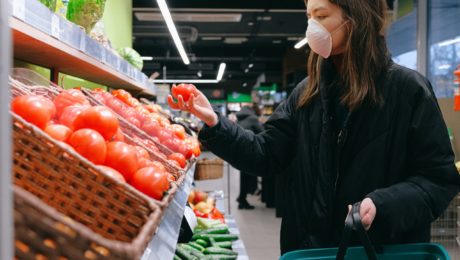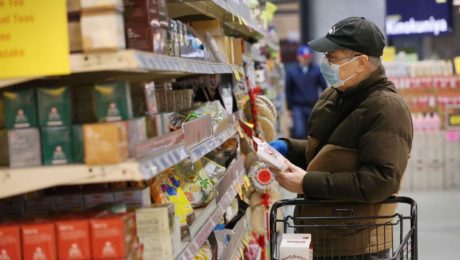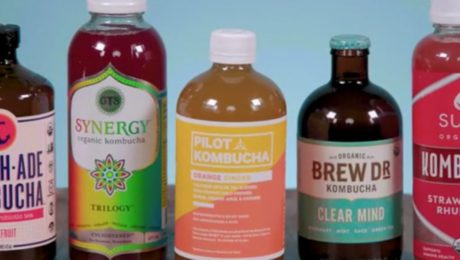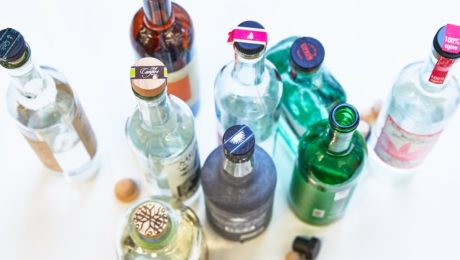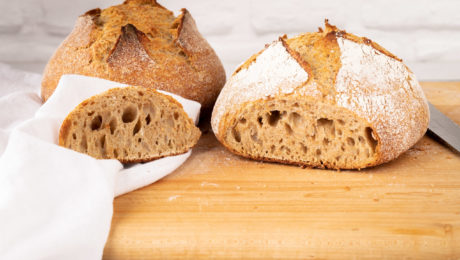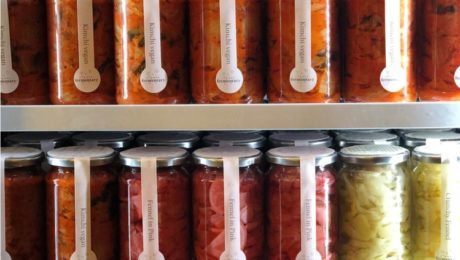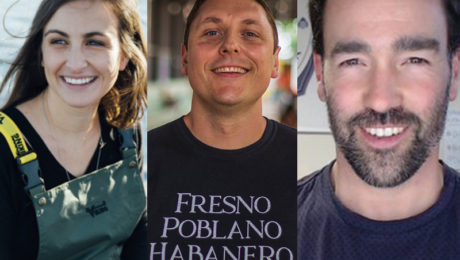4 Strategies for Fermentation Brands to Survive Coronavirus
While trying to keep up with increased demand during the pandemic, fermented food brands can’t lose sight of their core values and business strategy.
The COVID-19 outbreak has altered retail sales, with fast-paced, constantly changing sales and production cycles. Customers are going out of their way to find natural and fermented products, believing healthy food will be one of their best defenses against the global virus. But there is also pressure on pricing, with soaring unemployment and large segments of the economy shut down.
Dan Lohman, author of Brand Secrets and Strategies, says brands that sacrifice quality in order to compete on price will suffer.
“We as a natural (industry), we need to do everything we can to help leverage this storm,” he says “The mainstream retailer’s Achilles Heel is price – and you’ll struggle to compete if you just think about price. … Don’t apologize for quality. Always, always focus on the quality of the product.”
Lohman, an organic and CPG industry strategic adviser, shared business advice in a webinar sponsored by Whole Foods on “How Do You Future Proof Your Store in Uncertain Times.” Here are four of his strategies to help brands survive the pandemic.
1. Focus on Quality
As consumers experience wage loss and unemployment, brands will be tempted to drop their prices and offer a cheaper product. Lohman calls this a tired strategy.
“When you’re thinking about gluten-free, plant-based, some of these other things that we champion that start in our industry, these are the things that are driving sustainable sales across every single channel,” he says. “We should never have to apologize for good quality. Understand it’s our products, our industry, that’s responsible for growth across every category.”
Nielsen Data shows total U.S. food sales are up 1.9%, but natural and organic sales are up 11%.
The modern consumer frames their shopping list by the adage “You are what you eat.” They know eating a healthy, nutritionally dense food will keep them full for longer than a cheap, generic product.
“If I buy the cheap generic bread, I’m hungry almost before I finish eating it. If I eat the best mainstream bread, I may be satiated for a few hours. But if I eat the organic bread and that organic bread provides me the nutrition I need, that might satiate me longer. Even though I’m paying more (for the organic bread), I’m paying less overall. That’s the argument this industry needs to make,” he says. “Unfortunately, this is where we need to rethink how we need to go to market. Its not about price, its about value.”
“Focus on that, focus on how you are delivering that real value to your customer.”
2. Know Your Shopper
The natural shopper stereotype is someone who eats a salad and takes a walk. Defining the shopper in a small scope is limiting. Today’s natural shoppers are diverse and united in a common purpose: craving healthy food.
“Creativity is our single greatest asset. This is how we stand out on a crowded shelf. This is all about having a purpose. Natural is really good at that because were all purpose driven,” Lohman says.
3. Maintain a Score Card
Critical during the pandemic is continuing to track sales measurements. Brands need to tell retailers average turns, anticipated sales, ideal backstock, customer insight and category trends.
“A lot of brands today are reactive. They need to be proactive. It’s your name on the package,” Lohman says. “When a customer sees your product out of stock, they’ll blame the brand, not the retailer.”
Eighty percent of natural food brands fail in the first year of operation. Measurements are key to surviving, Lohman says. They show the retailer “the contribution a brand brings to the store.” Your band may not be the top-selling brand in the category, but it may be bringing the most dollars to the category.
4. Market Intentionally
As grocery store shelves quickly deplete of essential goods and medical supplies, natural brands can market their product as a health alternative.
Shoppers are struggling to find cold medicine. How does your product help alleviate cold symptoms? Grocery stores are selling out of flour. Is your product a healthy alternative to a carbohydrate?
“Help customers understand you’re there to solve their unique problems,” Lohman says.
- Published in Business
Fermentation Booms During Pandemic
In a matter of days, the novel coronavirus outbreak dramatically changed grocery shopping. Empty grocery store shelves have become a ubiquitous symbol globally of home quarantine.
Sales exploded for pantry staples like dried beans (62.9%), powdered milk (126.3%) and rice (57.5%). But another grocery quarantine must-have item is emerging – fermented food and drink. Sales are up for kombucha (10.1%), natto is selling out in Japan, yogurt is selling out in Europe and pickle and sauerkraut sales in Russia are up 79%. Fermentation brands are reporting some of their biggest sales during the month of March, as much of the nation was forced into self-isolation to prevent the spread of COVID-19.
“For fermented food, it’s an interesting time. We’re an immune boosting type of food, so our sales are skyrocketing. We’ve had the best month we’ve ever had in business,” says Drew Anderson, CEO of Cleveland Kitchen and TFA board member. Cleveland Kitchen makes sauerkraut and fermented dressings and marinades. “It is bittersweet. Obviously, we want this virus to go away. But we’re seeing the fermentation industry as a whole, the one benefit is it’s driving a lot of trial. People say ‘I heard fermented food is supposed to be good for you, I’m cooking more, why not grab a pack of kraut.’”
Though sales are high, brands are changing their operation model. Rather than running two shifts of processing at Cleveland Kitchen, they’re down to one. Employees must take daily temperature readings before work, stop for mandatory handwashing breaks and use new Purell hand sanitizing stations.
“Sales are up overall, but we have had to implement our emergency sanitation protocols to continue production,” says Meg Chamberlain, CEO of Fermenti, LLC. The North Carolina-based brand sells a variety of vegetable ferments, teaches fermenting workshops and hosts annual the annual WNC Fermenting Festival. Their staff is under voluntary home quarantine – which means staff only goes from work to home. “Overall our company is proving resilient and we are hopeful to continue to provide Fermenti to our community.”
Because food production is considered essential business, licensed fermentation companies have not been forced to stop working during the coronavirus outbreak.
Aneta Lundquist, CEO of 221 B.C. Kombucha, has been posting videos to her Instagram stories of the Florida based kombucha processing facility. Lundquist says employees are working overtime to deliver orders.
“Our orders during the global pandemic have spiked. Consumers have gone full blown ‘healthy’ food during this health crisis,” she says. “Now is the time to make a switch from over-processed and denaturalized pseudo foods to real, natural and unprocessed foods that nourish our body, mind and spirit and help building a strong immunity.”
Lundquist adds customers need to “think of kombucha, kimchi, sauerkraut and other fermented fruits and vegetables as microbiome rock stars!…Always choose wildly fermented foods.”
“Remember it is about diversity and the quality of microorganisms, not just quantity. You can only achieve this by fermenting traditionally.”
Keenan Smith, CEO of Goodwolf Kefir in Portland, agrees. He says: “The probiotic and fermented space will increase as people have an increase in health awareness and want a better functioning immune system.” They are home delivering their kefir, and donating a
Brands are getting creative with their marketing, too. Goodwolf Kefir is home delivering kefir to the Portland area and donating a proceed of sales to their local food bank. Cultured South and Golda Kombucha have setup a pick-up fridge at their Atlanta location where customers can prepay for an order online, get a secret code to unlock the fridge and grab fermented food and drinks. Wild Kombucha in Baltimore is offering free, local, “no human touch” home delivery for their 12 pack bottles. 28 Mile Vodka & Distillery in Illinois have converted their distillery to make hand sanitizer that they call “Fool’s Gin.” The CEOs of Miyoko’s Creamery and Lifeway Kefir are both using the brands Instagram accounts to share recipes using their product.
Outside the U.S., though, different government rules are restricting fermentation brands from operating during the global outbreak. In India, Mountain Bee Kombucha has halted operations during a 21-day lockdown.
“There is no question that our business is impacted immensely, one for the fact that we are still quite small-scale which supplies directly to a handful of local grocery stores. Currently those grocery stores have been working at limited capacity and/or temporarily shut,” said founder and head brewer Honey Islam. “Another reason for lesser business in these times is due to the lack of awareness in the Indian market about fermented foods, especially kombucha. We are engaged in educating our customers as well as spreading awareness in the community via workshops, classes, 101 sessions, pop-ups, all these channels are education are currently disrupted which stalled our efforts in bringing kombucha awareness to the masses.”
Mountain Bee Kombucha is focusing on educating through Instagram videos and YouTube tutorials.
- Published in Business
Sales of Probiotic Products Rise
As the coronavirus outbreak continues to put health on the forefront of consumer’s minds, the sales of probiotic products are rising. GlobalData, an analytics company tracking grocery sales, notes that natto (fermented soybeans) were out of stock in Japan consistently since the outbreak. Sales of yogurt are also increasing.
“Consumers are more actively buying probiotic products. There will not be natto panic buying in Europe, but probiotic products claiming to improve the immune system are likely to grab consumers’ eye,” said Mitsue Konishi, senior innovation analyst at GlobalData.
Read more (Food & Drink Technology) (Photo by ABC News)
- Published in Business
How Kombucha Became a Tea Empire
CNBC “Suddenly Obsessed” explores how kombucha went from a niche beverage to a massive fermented drink category reaching $500 million in sales. Once only popular among hardcore health enthusiasts, CNBC notes kombucha’s appeal is because of a growing consumer preference for healthier drinks. Bigger brands are entering the kombucha space, though, manipulating the brewing process. Pepsi Co. acquired Kevita kombucha, for example, and now Kevita pasteurizes their kombucha for a longer shelf life.
Read more (CNBC)
- Published in Business
More Entrepreneurs Enter Craft Mezcal Business
Mezcal, once deemed the next big thing, is “radically different” in 2020. The New York Times style section explores the amount of entrepreneurs entering the craft mezcal business. Mezcal is an alcoholic drink, distilled with fermented agave. “While some bigger mezcal brands exist, most are still small-scale, with tiny outputs. Tequila production is largely industrialized, at least for the brands available in the United States, but mezcal is still the equivalent of homespun,” according to the New York Times.
Read more (New York Times)
- Published in Business
How Sourdough Bread is Rising in a Stagnant Bread Industry
Bread sales continue to flatline as consumers grow leary of gluten and chemical preservatives. But there’s one bright spot in the market: sourdough. Preservative-free, clean ingredient, fermented sourdough bread is growing increasingly popular.
Read more (CNBC)
- Published in Business
Unethical Fermentation Shortcuts
“All fizz and no function” declares an article on fermentation shortcuts. “The rise of fermentation has gone completely bonkers,” says Elena Deminska, founder of The London Fermentary in the UK. “Fermentation is such a huge trend right now and there are so many health-conscious consumers buying these products, but there are some brands who are trying to take shortcuts and sending products out to stores that aren’t fermented.” Digestive wellness has become mainstream, thanks in part to fermented food and drinks high concentration of vitamins and nutrients. But Deminska says fermentation is not something that can be rushed or easily picked up.
Read more (Nutra Ingredients)
- Published in Health
Bubbling Over: Is Fermentation More Than a Fad
We asked three fermentation experts if recent popularity of fermented foods is a fading trend or a new food movement. These industry professionals weigh in on their predictions for fermentation’s future. The fermenters include: Bri Warner (CEO of Atlantic Sea Farms, a commercially viable seaweed farm that makes kelp kraut and kimchi), Nicholas Gregory (owner of Pulp Hot Sauce, an Atlanta-based fermented condiment brand), Joshua Rood (co-founder and CEO Dr Hops Kombucha beer, a health-conscious alcohol).
Do you think the surge of fermented food and drinks is a trend will disappear or a new food movement here to stay?
Bri Warner, CEO Atlantic Sea Farms: “Now that we have a robust understanding of how good gut health effects overall health, I think fermentation is here to stay. I do think the category will continue to innovate to remain relevant, with a stronger focus on quality ingredients that are good for people, planet, and, in our case, oceans!”
Nicholas Gregory, owner Pulp Hot Sauce: “I think the current fermented food movement is here to stay. We are at an intersection of technology, science and health further than we have ever seen in human history. The internet, television, several seminal books and air travel have given us unprecedented exposure and access to information. This exposure and access to food and world cultures is more in depth than ever before. Including the food history and traditions of those cultures. Combine that awareness with a relatively intelligent and sophisticated medical system; an understanding of healthy lifestyles, a willingness to make healthy decisions, an understanding of the benefits of a healthy gut biome and how it all correlates to a longer, happier, healthier life. Along with a craving for umami and fermented funky flavors for a growing number of the population. I believe we are in the middle of a movement that shows no signs of slowing down or going away anytime soon. In fact, I see it only becoming more popular, more normal, more accepted, more diverse, more creative and more exciting in the decades to come.”
Joshua Rood, co-founder and CEO Dr Hops Kombucha beer: “As co-founder and CEO of Dr Hops Kombucha Beer, I appreciate that there is currently a powerful trend towards living, fermented foods. But answering the question of whether or not that will continue is repugnant. We here at Dr Hops are driving that trend! We are not playing the game of hoping that it will simply continue. We are committing ourselves, each day, to the life-enhancing awesomeness of fresh, authentic, fermented foods and beverages. Please join us in that! Join us in leading the health-conscious food and beverage revolution!”
- Published in Business
Though Dairy Industry Sales Continue to Decline, Specialty Cheese Market Grows
Cheese making is a craft steeped in tradition. But as industry-altering trends emerge — like innovative ingredients, plant-based dairy, sustainable operations — how can cheese creameries compete?
At the Winter Fancy Food Show, heads of two specialty cheese companies in Northern California shared their insight about innovations and trends in specialty cheese.
Consumers are shunning processed cheese for specialty, small-scale, fermented, farmstead brands. Research from Winsight Grocery Business shows that specialty cheese sales are growing. Though sales of dairy-based cheese dipped in 2019, specialty cheese sales are up 2%.
Using Innovative Ingredients
“In cheese, the great thing is that tradition is always up-to-date,” says Manon Servouse, brand manager for Marin French Cheese. Founded in 1865, Marin French Cheese still uses the traditional art of French cheese making, but “we add innovation with inspiration from our local area” in Marin County, California, where Marin’s operations are located.
Marin’s new ingredients include adding jalapeno, truffle and ash coating.
Laura Chenel cheese, meanwhile, is also experimenting with new flavors. The goat cheese brand based in Sonoma County, California adds bacterial cultures to their goat milk, a fermentation process that produces a distinct flavor. Laura Chenel’s newest cheese won a Good Food Award this year. The aged goat cheese, called Crottin, develops a specific rind on the cheese, which aids the cheese’s flavor.
Competing with Plant-Based Cheese
Eric Barthome, CEO of Laura Chenel, says though plant-based cheese is becoming a force in the food industry, plant-based is not their audience.
“The real cheese lovers like cheese made with milk,” Barthome says. “And that’s what we want to do. We’ve been working on the quality of the milk for so long that, yes, there’s room for new products and new cheese made with plant-based products. However, our credo is really to continue to make the best milk to make the best…real goat cheese we can make.”
Plant-based foods are becoming mainstream. U.S. retail sales of plant-based foods grew 11% the past year, according to research by the the Plant Based Food Association and Good Food Institute. Sales of the total plant-based market was $4.5 billion. That figure goes beyond cheese, and includes plant-based milks, cheese, yogurt, ice cream and meat. Plant-based meats are the leading sales driver for plant-based products.
Though plant-based cheese sales are growing, milk-based cheese topped $18 billion in sales in 2019, with specialty cheese sales growing the fastest.
Manon says people are turning to plant-based products because they’re concerned about animal welfare. She noted, at Marin French Cheese, they work with two small creameries to get their milk to monitor the health of the animals. They run small-scale to produce high-quality milk.
Importance of Sustainability
Running an environmentally sustainable creamery is key to successfully operating a modern cheese creamery.
Laura Chenel was sold to the French Triballat family in 2006, and the new leaders decided to build a new creamery in Sonoma County. The new facility reduced the use of natural resources by using water more efficiently, utilizing solar energy, implementing natural lighting and retooling waste management. The new creamery is the only LEED gold certified cheese creamery in the world.
“Very important to us is respect for the environment, respect for tradition and respect for the animals,” Barthome says.
- Published in Business
Traditional Fermented Shark Becomes Tourist Draw in Iceland
Hákarl, fermented shark, is a traditional Icelandic food that has become a major draw for tourists to the country. The shark, the Greenland Shark, lives in the deepest parts of the Arctic and North Atlantic water. It’s also the longest living vertebrate on earth — its average lifespan is 272 years. The sharks are rarely caught intentionally; they’re usually a bycatch of halibut fishing.
Because Greenland sharks live in deep water pressure, the sharks are full of high concentrations of nitrogenous waste products, making their flesh toxic. So the Greenland shark must be fermented for humans to safely consume it. Meat is sliced, buried, then hung to dry in open structures for months. Consuming the meat has become a rite of passage for the bravest foodies. The fermented meat has an ammonia stench and a chewy texture.
Read more (Forbes)
- Published in Food & Flavor


